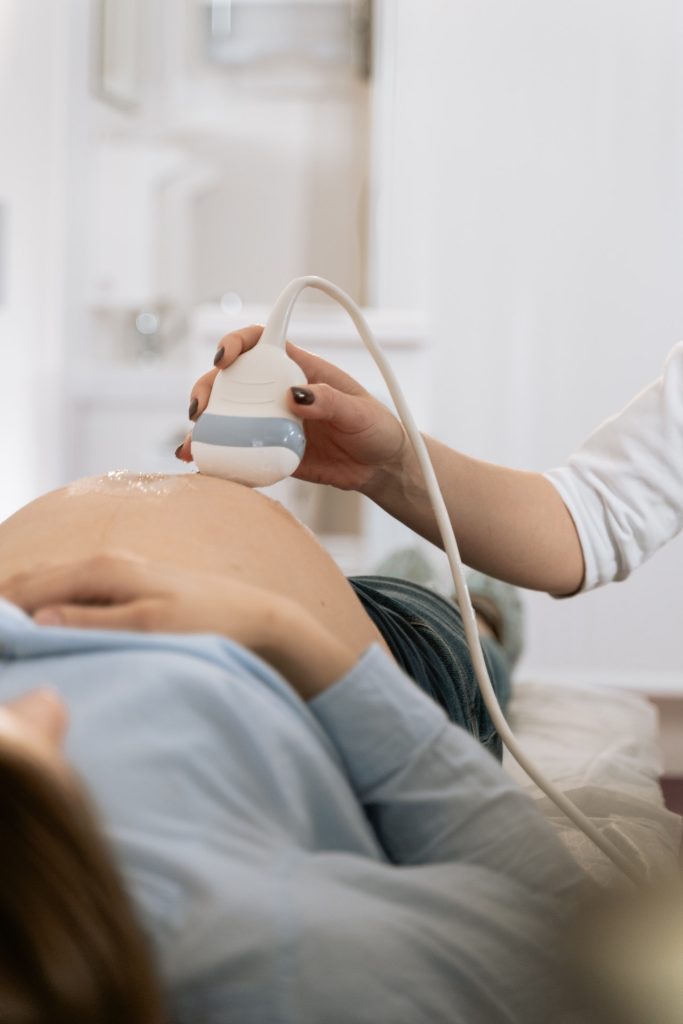Finding low-cost or free prenatal care is a priority for women who choose to become parents. It can be a deciding factor in the choice a woman makes about how to handle her pregnancy. Sometimes pregnancy happens when you least expect it. Missing out on the ability to obtain reasonable healthcare and wellness checks throughout their pregnancy can have devastating results. A lack of prenatal care in the U.S. continues to impact how healthcare is delivered to women, including pregnant women. Gaining access to prenatal care and affordability of prenatal care are two aspects most pregnant women say need improvement in the U.S. If the only thing influencing whether a woman continues with her pregnancy is accessibility and cost, Care Net Pregnancy Centers of Albuquerque can help.
How prenatal care works
Most women do not need their first prenatal checkup until 10 to 12 weeks into their pregnancy. This first appointment follows a pregnancy confirmation visit between 5 and 8 weeks when most women first realize they may be pregnant. Women can expect a comprehensive examination during the first prenatal care appointment. Most obstetricians conduct an exam, listen for a heartbeat, and order routine physical and prenatal labs.
Pregnant women can expect other prenatal visits on this recommended schedule:
- Weeks 12-27 – one prenatal visit per month.
- Weeks 28 to 36 – one prenatal visit every two weeks.
- Weeks 26 to 4 – one prenatal visit every week.
Weekly prenatal checkups continue until labor begins. Women who are pregnant with twins or who have any complications may need more frequent visits.
Risk factors that influence the frequency of prenatal care
Recommended prenatal care is not set in stone. Some risk factors can increase the number of times a pregnant woman must be seen. Additional fetal monitoring may be part of the process under certain conditions. Here are a few of the times when pregnant women may need more frequent prenatal care.
- Age. Women older than 35 have an increased chance of having a baby with a birth defect. There also is a higher risk of complications during delivery.
- Multiples. Women who are pregnant with twins have a higher risk of complications and must be observed carefully by medical providers throughout their pregnancies and deliveries.
- Pre-existing health conditions. Women with a history of diabetes or high blood pressure are among those at higher risk during pregnancy. Close monitoring of these and other pre-existing health conditions can ensure the health of the mother and the baby.
- Pregnancy-induced complications. Some risk factors only happen after a woman becomes pregnant. They include gestational diabetes, high blood pressure, and preeclampsia. Women who develop any complications require additional monitoring.
- Preterm labor. Pregnant women showing signs of going into early labor must be monitored more closely during pregnancy, which can mean more frequent visits and additional testing.

How to find affordable or free prenatal care
Care Net Pregnancy Centers of Albuquerque offers free pregnancy testing and free limited pregnancy ultrasounds to pregnant women. Confirming a pregnancy is the first step in the decision-making process. Women who decide to continue with their pregnancies have two options: adoption or parenting. Choosing to work with an adoption agency means an expectant mother receives prenatal care and any other medical attention needed throughout her pregnancy and delivery. Ensuring a healthy baby for adoptive parents is a priority for most adoption agencies. While Care Net does not handle adoptions, our staff can make community referrals for programs that can assist if a woman chooses to go this route.
Women who want to become parents but need help finding low-cost or free prenatal care have options as well. Among their choices:
- Medicaid. Most (but not all) states provide low- or no-cost medical coverage through their Medicaid insurance programs for pregnant women. Eligibility factors can include household size, income, and residency. New Mexico is one of the states that provides comprehensive medical coverage to pregnant women. Our team at Care Net can help connect pregnant women with their local assistance office to get started with this process.
- Affordable Care Act. Pregnant women who do not qualify for Medicaid because of income levels or other criteria that makes them ineligible can shop for insurance plans on the New Mexico state-run exchange. Women at certain income thresholds qualify for government subsidies that can significantly reduce the cost of healthcare through the exchange.
- Prenatal care clinics. New Mexico offers several free prenatal care clinics for women who are uninsured or underinsured. They charge based on income levels and need. Care Net can help connect pregnant women with these resources.
Care Net for affordable pregnancy care
The caring staff at Care Net Pregnancy Centers of Albuquerque wants to support women in their pregnancy decisions. Helping pregnant women gain access to low-cost or free prenatal care is part of the services we provide. Contact us today to schedule your free consultation with our knowledgeable staff.
